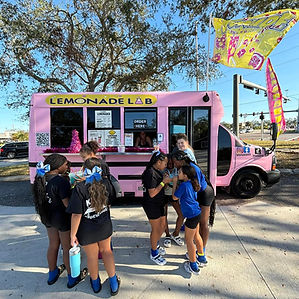Basic Checklist to Start a Food Truck in Carmel
Renew your Mobile Food Vendor Permit annually.
Complete a fire safety inspection if using cooking equipment like grills or fryers, with the Carmel Fire Department.
Pass a health inspection conducted by Hamilton County Health Department.
Obtain a Mobile Food Vendor Permit from the City of Carmel.
Comply with special event permits if operating at community events, fairs, or markets.
Ensure the food truck meets sanitation standards, including an onboard handwashing station and proper waste disposal.
Submit proof of liability insurance and business registration.

City Specific Permit Background for Food Trucks in Carmel
To operate a food truck in Carmel, Indiana, you must follow these steps to secure the necessary permits:
Mobile Food Vendor Permit: This permit is required to operate a food truck within the city limits of Carmel and can be obtained from the City of Carmel.
Application Process:
Submit the Mobile Food Vendor Permit Application to the City of Carmel, including business and truck details.
Health inspection: The Hamilton County Health Department will inspect the food truck to ensure it meets health and sanitation standards.
Fire safety inspection: If the truck uses cooking equipment (grills, fryers, etc.), it must undergo a fire safety inspection by the Carmel Fire Department.
Special event permits: If you plan to operate at events like community festivals or farmer's markets, a special event permit may be required. These permits are generally managed through Carmel Clay Parks & Recreation or other event organizers.
Unique Conditions:
Food trucks must comply with zoning laws that regulate where they can park or operate, such as restrictions near schools or residential zones.
Operating at special events may require additional paperwork or approvals from the Carmel Clay Parks & Recreation Department or other event organizers.
Cost of Business Permit
$375
How Often Business Permit needs to be Renewed
Annually
Health Requirements for Food Trucks in Carmel
Inspections: Food trucks must pass an initial health inspection and annual inspections conducted by the Hamilton County Health Department. Inspections cover sanitation, food storage, food handling, and equipment standards.
Food Safety Certifications: Operators must have a Food Protection Manager Certification or equivalent to meet state and local health requirements.
Truck-Specific Requirements:
Trucks must have an onboard handwashing station with hot and cold running water.
Waste disposal systems, including trash and gray water management, are required.
Temperature control must be maintained to ensure food safety (hot and cold food storage).

Permitted Operating Hours for Food Trucks in Carmel
Food trucks generally operate from 7:00 a.m. to 10:00 p.m., with extended hours possible for special events, depending on the permit.
Notable Fire Requirements for Food Trucks in Carmel
Food trucks with cooking equipment (e.g., propane, grills, deep fryers) must undergo a fire safety inspection by the Carmel Fire Department.
Food trucks must be equipped with fire extinguishers and meet local fire safety codes. Fire suppression systems may also be required depending on the cooking equipment used.

Other Local Notes for Operating a Food Truck in Carmel
Special Event Permits: For food trucks planning to operate at community events or festivals, additional special event permits may be required. These are managed by Carmel Clay Parks & Recreation or event organizers.
Zoning Restrictions: Trucks must adhere to local zoning laws, and certain areas or streets may have restrictions on food truck operations.
Parking Permits: If operating in specific public spaces, a parking permit may be required for use of the space, especially in high-traffic areas.
The information on this page is collected through collaboration with local food truck owners and occasional voluntary submissions from local government and health officials. Food Truck Profit is not a government agency and cannot guarantee the accuracy or completeness of this information. All food truck owners are strongly encouraged to consult directly with local government officials, including fire and health departments, to ensure compliance with all regulations. Food Truck Profit assumes no liability for errors or omissions in the content provided.

